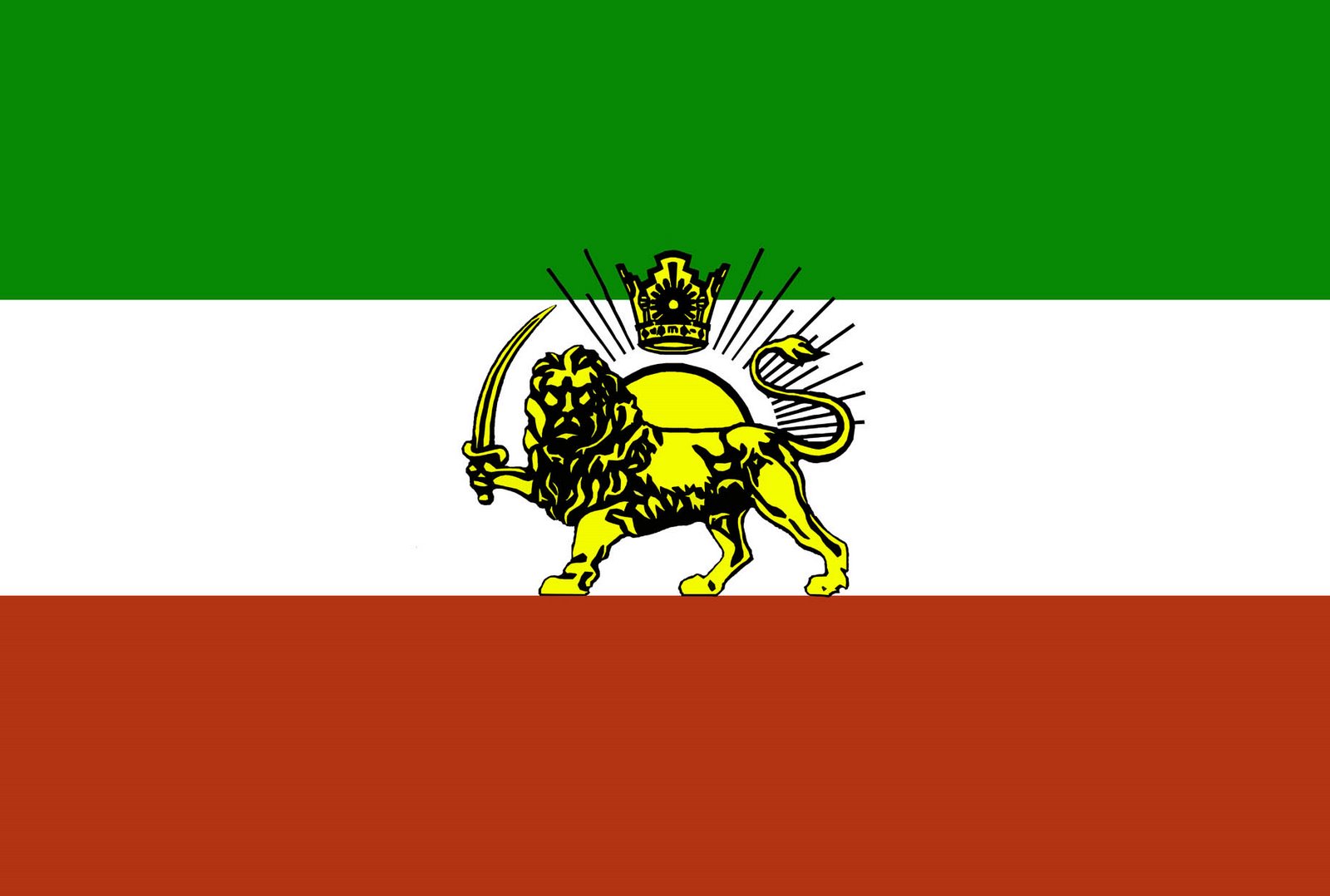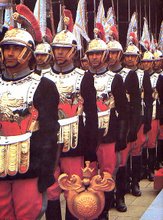Sunday, April 04, 2010
Saturday, April 03, 2010
The Fall of the Shah - Fereydoun Hoveyda
Hoveyda Fereydoun, 1979. The Fall of The Shah, Wyndham Books, NY
Amazon Reviewer:
I've recently finished reading this book published by the brother of Iran's late Prime Minister Amir-Abbas Hoveyda - namely Fereydoun Hoveyda. Fereydoun Hoveyda was an Iranian diplomat who served as Ambassador to the United Nations (1971-1979) and also served as Deputy Foreign Minister during the Pahlavi Era.
This book was written within months of the takeover of government institutions by anti-Iranian islamic militants, establishment of an Islamic state, and execution of his brother at the hands of the revolutionary islamist terrorists. Although he states in the prolouge of the book that he intends to stay objective in his analysis this is not always the case as any reader comes to realize - understandable to some extent.
Many accusations in the book are subjective in nature (and this is expected after the author clearly states he hates the late Shah and lays the blame for what happened to his brother on him) rather than facts that can be verifiably established - despite this going against his expressed intent of staying objective. Most reviews of this book seem to come to this same conclusion. This leads me to believe that many of the attacks are vindictive in nature rather than grounded in facts. Would it be right of us, the readers, to accept all these subjective assesments as truths? I definately do not think so, and believe that the closest we can come in establishing something in this regard is to take into consideration a multitude of different sources upon which we can draw a fairer conclusion upon.
Having said that though there certainly are valid criticisms in the book of the late Shah, dealing with neglecting political liberties, not being hard enough on corruption, and issues pertaining to economic mismangement (most of them attributed towards the end of the Shah's reign), which can definately be taken into account when trying to come to a fair assessment on the late Shah of Iran. On top of objective criticism there are also positive objective passages regarding the advances achieved under the Pahlavi Era. A bit of further examination should be sufficient in most cases to establish which statements would fall under which category (vindictive/subjective, or objective in nature).
Fereydoun Hoveyda argues that "by 1970-72 the improvement in material conditions was requiring a parallel move toward democratization. Here the sovereign committed a serious error of judgement and let slip a number of opportunities. Yet as early as 1971 the apperance of guerilla activity, even on a small scale, ought to have alerted him."
But then he seems to contradict his first statement (society being ready for democratization) when he states later on (highlighted part being directly relevant with the rest of the passage included as a matter of interest):
So based on these two statements - how can an "inarticulate and often illiterate mass" be ready for democratization? Should this mass or society not be given enough time to reach a fair level of being literate/informed/educated mass before they are given FULL rights to determine the future direction of the country? If an inarticulate, superstitious and illiterate mass are given FULL rights to determine their future, is not anarchy the only realistic result of such a ludicrous move? Iranian society had come a long way at the turn of the previous century however there was still some way to go before such noble aspirations could materialize - there is nothing wrong about Fereydoun Hoveyda's aspirations as I believe any patriotic Iranian would share them, however his timing in demanding them in this regard was not correct. Also on the issue of misappropriating funds into the country's defense capabilities I have to disagree with Fereydoun Hoveyda as where would our country be today if it wasn't thanks to what remained of our military and defense capabilities at the time of the Iraqi invasion!? Although the command structure was in tatters thanks to purges by the Islamists we were still able to keep the Arab invaders at bay. Given that this book was written before the Iraqi invasion I don't believe the late Ambassador was aware of how crucial those defense capabilities would mean for our country to maintain its territorial integrity in the volatile region it finds herself in.
Some of the positive aspects that are attributed to the Pahlavi Era in the book are described in the following passage:
Amazon Reviewer:
"The author of this angry little book worked as a diplomat for the Shah of Iran for almost 30 years. His older brother served as the Shah's Prime Minister for 13 years. And yet the book is a vitriolic attack against the Shah. The reason? In the last months of his reign the Shah decided to imprison the author's brother, Amir-Abbas Hoveyda,in a forlorn bid to silence the regime's violent critics. Amir Abbas Hoveyda was made a scapegoat. When the Shah left Iran with his wife and family he abandoned Amir-Abbas to the bloodthirsty mullahs who soon seized power. That was a cowardly act on the part of the Shah. The mulahs murdered Amir-Abbas Hoveyda along with tens of thousands of other Iranians who fell into their hands. Fereydoun Hoveyda cannot forget, or forgive, the betrayal of his borther. And that is understandable.
The problem is that Fereydoun Hoveyda's emotions prevented him from writing a balanced book. His vilification of the Shah can only absolve, albeit only partly, the mullahs who actually murdered Amir-Abbas. Had the title of the book been " Settling Scores with the Shah", I would have had no obejction. The Shah was certainly no angel. But nor was he the demon that Fereydoun Hoveyda pretends.
For a more balanced biography of the Shah, and a less emotional account of Amir-Abbas Hoveyda's tragic fate, you could read William Shawcross's " The Shah's Last Ride" which remains a good example of the Western art of biography.
For a more initimate, and Iranian, view you could read Amir Taheri's " The Unknown Life of the Shah". Taheri knew the Shah well and was also regarded as a personal friend of Amir-Abbas Hoveyda.He has thus been able to remain fair to both men, although his bias, not to say hatred, of the Islamists colours his broader political judgment. A READER IN RICHMOND, SURREY, UK"
I've recently finished reading this book published by the brother of Iran's late Prime Minister Amir-Abbas Hoveyda - namely Fereydoun Hoveyda. Fereydoun Hoveyda was an Iranian diplomat who served as Ambassador to the United Nations (1971-1979) and also served as Deputy Foreign Minister during the Pahlavi Era.
This book was written within months of the takeover of government institutions by anti-Iranian islamic militants, establishment of an Islamic state, and execution of his brother at the hands of the revolutionary islamist terrorists. Although he states in the prolouge of the book that he intends to stay objective in his analysis this is not always the case as any reader comes to realize - understandable to some extent.
Many accusations in the book are subjective in nature (and this is expected after the author clearly states he hates the late Shah and lays the blame for what happened to his brother on him) rather than facts that can be verifiably established - despite this going against his expressed intent of staying objective. Most reviews of this book seem to come to this same conclusion. This leads me to believe that many of the attacks are vindictive in nature rather than grounded in facts. Would it be right of us, the readers, to accept all these subjective assesments as truths? I definately do not think so, and believe that the closest we can come in establishing something in this regard is to take into consideration a multitude of different sources upon which we can draw a fairer conclusion upon.
Having said that though there certainly are valid criticisms in the book of the late Shah, dealing with neglecting political liberties, not being hard enough on corruption, and issues pertaining to economic mismangement (most of them attributed towards the end of the Shah's reign), which can definately be taken into account when trying to come to a fair assessment on the late Shah of Iran. On top of objective criticism there are also positive objective passages regarding the advances achieved under the Pahlavi Era. A bit of further examination should be sufficient in most cases to establish which statements would fall under which category (vindictive/subjective, or objective in nature).
Fereydoun Hoveyda argues that "by 1970-72 the improvement in material conditions was requiring a parallel move toward democratization. Here the sovereign committed a serious error of judgement and let slip a number of opportunities. Yet as early as 1971 the apperance of guerilla activity, even on a small scale, ought to have alerted him."
But then he seems to contradict his first statement (society being ready for democratization) when he states later on (highlighted part being directly relevant with the rest of the passage included as a matter of interest):
"From what source did the inarticulate and often illiterate masses derive their inexorable strength? Was it simply from the fervor inspired by their deep faith? But Shi'ism had been their driving force ever since the sixteenth century. Was it from the fiery speeches of Khomeini? But the Ayatollah had been calling on them to rise up in rebellion long years since?
Who helped them to rebel? Mossadeq's National Front? The intellectuals of the right and the left? But these represented only a very small minority. Or was it the oil companies, unhappy with the Shah's policies? But their powers were limited, and after all they were still getting their oil.
There has been some talk of foreign influences. The Shah held all-day consultations with the Americans and British ambassadors. The Palestinians trained guerilla groups. Radio Peyke Iran had been criticizing the Shah from an East European country. Nixon and Kissinger had encouraged the Shah to squander the country's wealth on sophisticated armaments.
Other observers go further still. Thus, Robert Dreyfuss and his colleagues on the Executive Intelligence Review see the Iranian revolution as stage one in a grand "conspiracy" engineered in certain British and Western intelligence circles and designed to destabilize the region and dismember its component countries, so as to reconstitute them inside new frontiers. According to them, the Iranian executants of this secret plan were [Ebrahim] Yazdi, Ghotzadeh, Bani-Sadr, and Amir-Entezam. Again according to them, Yazdi, an American citizen, was recruited by Richard Cottam, professor of political science at Pittsburgh University, with reputed CIA connections. So it is not Western governments who are behind the alleged consipiracy, but a secret "brotherhood" whose purpose is to prevent the industrialization of the Third World and to keep it in a permanent state of underdevelopment. Islamic fundamentalism is supposed to have provided the plotters with a powerful weapon for inducing such a backward step. Iran was chosen first because conditions were favorable there...These views have found a certain amount of confirmation inside Iran itself. For instance, when the Ayatollah Taleghani, the religious leader of Tehran, disappeared on May 17, 1979, after the arrest of his children by the Komiteh, some fantastic rumors broke out in the capital. When the Palestinians occupied the offices of the Israeli representatives in Iran, according to rumor they found documents which established the existence of contacts between Yazdi, Ghotzadeh, and other associates of Khomeini and foreign intelligence services. They at once called Taleghani's son and handed the papers over to him. The Komiteh, which was tapping the line, picked up Taleghani Junior as he left the building and took away the compromising documents.
These are just rumors, of course, but certain world happenings do give grounds for reflection. For example there is the sudden switch by Western economists, who are now talking about the bankruptcy of their previously held theories of development. All at once they are urging the Third World to confine itself to a predominantly agricultural economy, in order to increase food production and use more of the work force. And this comes at the very moment when the experts are maintaining that at the present rate of population growth the poor countries will never be able to supply their own needs. The famous "green revolution", launched amid such a fanfare of publicity, has been unable to solve the problems of the developing regions. As for Iran, with its lack of arable land and water it cannot hope to become agriculturally self-sufficient. Although the Shah may have made a lot of mistakes. the fact remains that his broad idea of industrialization was essentially correct. For how are sixty million Iranians to be fed and clothed as they enter the third millenium, once the oil deposits are used up, except by means of an export-oriented industrial sector?"
So based on these two statements - how can an "inarticulate and often illiterate mass" be ready for democratization? Should this mass or society not be given enough time to reach a fair level of being literate/informed/educated mass before they are given FULL rights to determine the future direction of the country? If an inarticulate, superstitious and illiterate mass are given FULL rights to determine their future, is not anarchy the only realistic result of such a ludicrous move? Iranian society had come a long way at the turn of the previous century however there was still some way to go before such noble aspirations could materialize - there is nothing wrong about Fereydoun Hoveyda's aspirations as I believe any patriotic Iranian would share them, however his timing in demanding them in this regard was not correct. Also on the issue of misappropriating funds into the country's defense capabilities I have to disagree with Fereydoun Hoveyda as where would our country be today if it wasn't thanks to what remained of our military and defense capabilities at the time of the Iraqi invasion!? Although the command structure was in tatters thanks to purges by the Islamists we were still able to keep the Arab invaders at bay. Given that this book was written before the Iraqi invasion I don't believe the late Ambassador was aware of how crucial those defense capabilities would mean for our country to maintain its territorial integrity in the volatile region it finds herself in.
Some of the positive aspects that are attributed to the Pahlavi Era in the book are described in the following passage:
"[In 1977] more than 65% of the population owned the houses they lived in (and the percentage was even higher in the capital). Per-capita income stood at $2,200 ($300 in 1965). Primary school attendance was over 10 million (270,000 in 1960). Illiteracy had fallen from 85% to 55%. Whereas oil revenues had accounted for 90% of the gross national product in the 1950's, in 1977 they came to no more than 35% (for a total of $70 billion). The present critics of the regime claim that industry was confined to assembly. They forget that in the car industry, for example, in 1977 more than 65% of components were manufactured in Iran. Agriculture, although it left a lot to be desired, was showing real and appreciable progress, as the events of 1978-79 have proved. (In fact, although almost all Iran's foodstuff imports were paralyzed, there was never any shortage of food supplies either in Tehran or in any of the other towns. And it is worth mentioning that from 1972 to 1977 domestic consumption had quadrupled.) In the fields of communications, social welfare, health, education, etc., the picture was equally impressive. If inflation, which had remained reasonable until 1975, began galloping in 1977, it is generally agreed that this was the outcome of the sudden injection of Iran's increased revenues from oil."Fereydoun Hoveyda passed away in Virginia (USA) in 2006.
Labels:
Aryan,
Fereydoun,
Hoveyda,
Iran,
Iranian,
Islamic Republic,
khomeini,
oil,
Pahlavi,
Shah,
Shahanshah,
shahanshahi,
USA
Patriotic Poem- Vatan (Mihan)
A patriotic poem, dedicated to the motherland, sung by an Iranian lady (video is embedded in the following page):
http://www.farhangsara.com/
http://www.farhangsara.com/

Labels:
democracy,
freedom,
Iran,
Iranian,
mihan,
patriotism,
secularism,
vatan
Subscribe to:
Comments (Atom)























